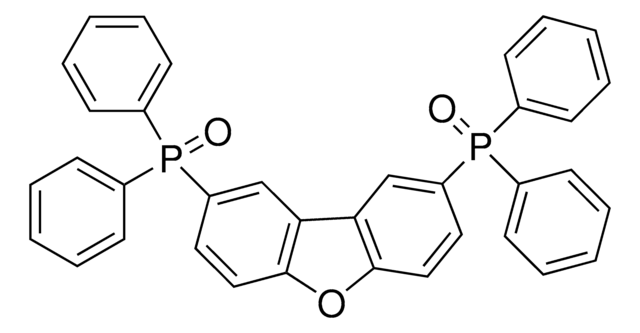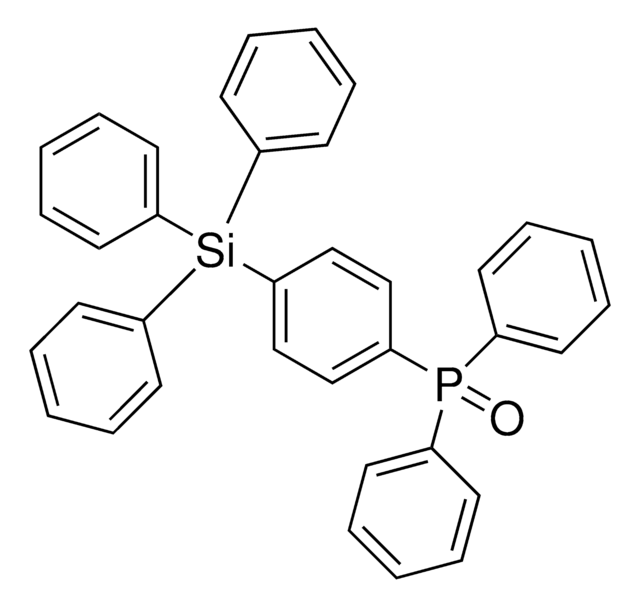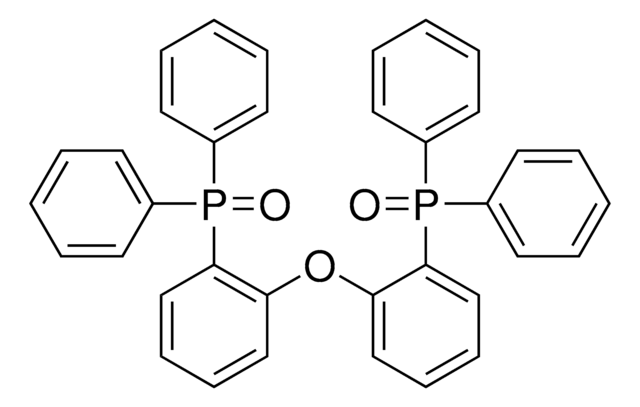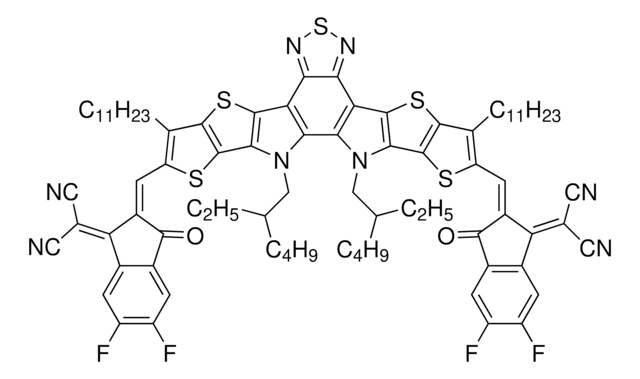901102
PPT
sublimed
Synonym(s):
2,8-Bis(diphenylphosphoryl)dibenzo[b,d]thiophene
About This Item
Recommended Products
Quality Level
form
solid
color
white
SMILES string
O=P(C1=CC=CC=C1)(C2=CC=CC=C2)C(C=C3)=CC4=C3SC5=C4C=C(P(C6=CC=CC=C6)(C7=CC=CC=C7)=O)C=C5
InChI
1S/C36H26O2P2S/c37-39(27-13-5-1-6-14-27,28-15-7-2-8-16-28)31-21-23-35-33(25-31)34-26-32(22-24-36(34)41-35)40(38,29-17-9-3-10-18-29)30-19-11-4-12-20-30/h1-26H
InChI key
ZCJJIQHVZCFSGZ-UHFFFAOYSA-N
Looking for similar products? Visit Product Comparison Guide
Storage Class Code
11 - Combustible Solids
WGK
WGK 3
Flash Point(F)
Not applicable
Flash Point(C)
Not applicable
Choose from one of the most recent versions:
Certificates of Analysis (COA)
Don't see the Right Version?
If you require a particular version, you can look up a specific certificate by the Lot or Batch number.
Already Own This Product?
Find documentation for the products that you have recently purchased in the Document Library.
Customers Also Viewed
Related Content
Organic electronics utilizes organic conductors and semiconductors for applications in organic photovoltaics, organic light-emitting diodes, and organic field-effect transistors.
Organic electronics utilizes organic conductors and semiconductors for applications in organic photovoltaics, organic light-emitting diodes, and organic field-effect transistors.
Organic electronics utilizes organic conductors and semiconductors for applications in organic photovoltaics, organic light-emitting diodes, and organic field-effect transistors.
Organic electronics utilizes organic conductors and semiconductors for applications in organic photovoltaics, organic light-emitting diodes, and organic field-effect transistors.
Our team of scientists has experience in all areas of research including Life Science, Material Science, Chemical Synthesis, Chromatography, Analytical and many others.
Contact Technical Service









